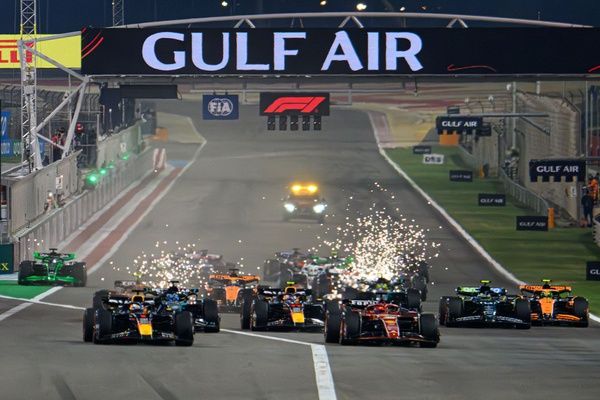Teams mystified by engine unfreeze
Leading Formula One teams say they are baffled about the decision by the FIA to equalize engines for next season

Following a push by Red Bull Racing and Renault to even up engine performance, the sport's governing body announced in the build-up to the Japanese Grand Prix that power units would be equalized for 2009 providing cost cutting measures are introduced.
Although how the engines will be equalized has not been confirmed, representatives from McLaren-Mercedes and BMW-Sauber are not too happy about the move.
McLaren boss Ron Dennis said: "We are a little bit mystified. All that talk about the five-year stability rule, the initiative was driven by cost-reduction and we have taken that cost reduction.
"To get the cost reduction, we have completely dismantled our engine development teams and, what we have now, is individuals that are focused and with completely different skill levels on reliability.
"These are guys that really understand the material properties and the characteristics of components that are under loads in engines. It's a completely different group of technologies, a much smaller group of technologies that are focused on reliability."
And Dennis queries how it can be possible to equalize engines for next season if the introduction of Kinetic Energy Recovery Systems (KERS) will likely bring out performance differential between teams.
"In reality, we love the challenge of KERS. We think it could be one of the best things ever because it's so challenging, it's so complex and so difficult to master. And it if is mastered well it could create a performance differential. But of course with that comes cost.
"The fear I have is that if we can't have the stability we were committed to in our engines, then what likelihood is there that we will have stability if there's a big differential about how well KERS has been implemented by the teams.
"From our point of view, we are completely receptive to giving everybody the opportunity to improve their engines, but whatever the decision is, it should be the same for everybody.
"We don't mind, we will adapt, we will re-resource, we will finance and we will do what's necessary to maintain our competitiveness as we will with KERS because we love the engineering challenge.
"Putting aside what it contributes to mankind, I want to make the point that this is not the way to save money. We'll embrace it, we'll do it, but from this time last year having five years of engine stability to be already looking at addressing some of those issues does our head in."
He added: "We're not negative to anything, but we are confused by the constant change in message. Are we saving money? Are we having a technological race? On the one hand we've got KERS, on the other we've got engines that are all the same. We're opening up engines that were sealed for five years. It's very confusing.
"Change costs money. We've got very good motor racing at the moment. It's so close and the others will catch up. If we have to do things, we'll do them, but let's do them against an absolute background of understanding about what we're doing and why we're doing it, because we're confused."
BMW motorsport director Mario Theissen added: "The announcement of the FIA to allow something like engine equalisation doesn't say what will happen now, it just opens the door. In my view, there are several aspects to be taken into account.
"Firstly, it's a competitive issue - it changes the playing field. Secondly, if we open up something, it has to be open for everybody. Thirdly, if that isn't done carefully we will initiate another cost race and a technology race on an already very expensive engine.
"In my view, this has to be very carefully discussed within FOTA in the technical working group and the engine working group to come up with, if at all, something sensible."
Not all manufacturers are upset about the move to equalize engines, however. Honda Racing CEO Nick Fry told autosport.com that he welcomed the decision to help under-powered engines - of which Honda is believed to be one - get a performance increase.
"The FIA, since we have had the common ECU, clearly have a lot of information about the relative performance of the engines," he explained. "Although it was never intended with the frozen engine, there is clearly a disparity.
"So we are pleased moves will be made to pull it back together again. I am not an expert on what the FIA can see from the modules, but I am sure they have good information of the power characteristics. So to equalise the power curves is something that on the surface can be done."
Be part of the Autosport community
Join the conversationShare Or Save This Story
Subscribe and access Autosport.com with your ad-blocker.
From Formula 1 to MotoGP we report straight from the paddock because we love our sport, just like you. In order to keep delivering our expert journalism, our website uses advertising. Still, we want to give you the opportunity to enjoy an ad-free and tracker-free website and to continue using your adblocker.















Top Comments